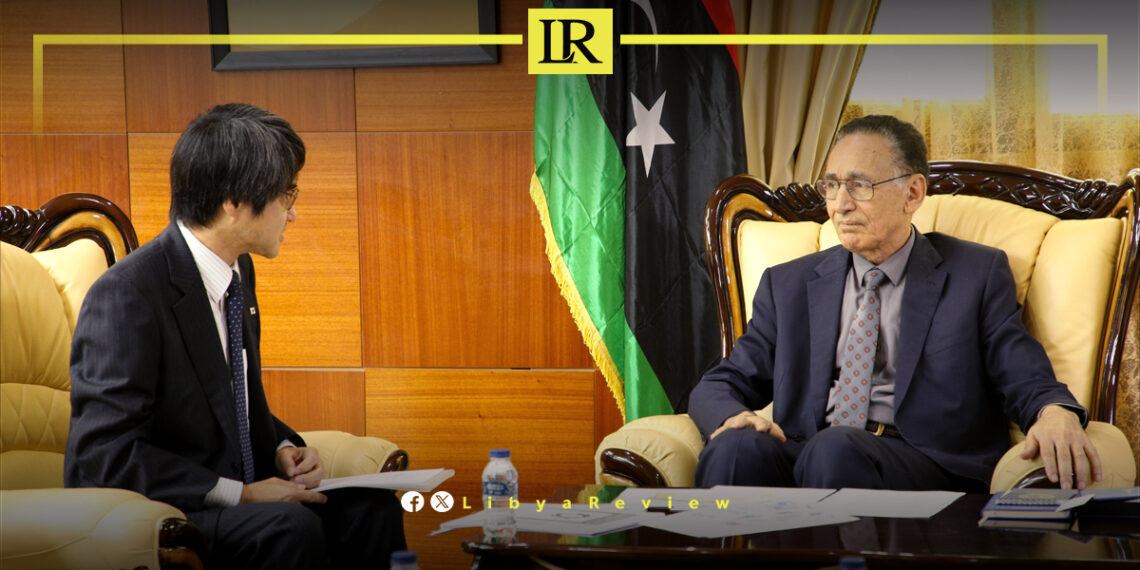The Minister of Economy and Trade in Libya’s Government of National Unity, Mohamed Al-Hwaij, met with Japan’s Ambassador to Libya, Shimura Izuru, to discuss strengthening cooperation in the field of clean energy.
A statement from the ministry highlighted the discussions, which centered on economic relations in various sectors, including enhancing trade and economic cooperation under a new vision for collaboration with Japan. This is part of the Government of National Unity’s broader strategy to foster economic partnerships with friendly nations, including Japan.
The two sides explored the potential for expanding bilateral relations in clean energy, industrial zones, and free trade areas. They also discussed the possibility of opening a branch of the Libyan-Japanese Training and Consulting Agency in Libya.
The meeting concluded with an agreement to draft a Memorandum of Understanding aimed at protecting investor rights in both countries. Minister Al-Hwaij assured that the ministry would provide all necessary support for Japanese companies and investors to operate in various regions of Libya.
For his part, Ambassador Izuru expressed Japan’s desire to boost economic and trade cooperation and increase business exchange between the two countries.
The discussions also led to the agreement to host a Libya-Japan Forum in Tripoli in 2025, with participation from the private sectors of both nations.
Libya has been in a state of political chaos since the 2011 overthrow of Muammar Gaddafi. The country is divided between two rival administrations: the Government of National Unity (GNU) based in Tripoli, and an eastern administration.
This divide has led to ongoing conflict and instability, with each side vying for control over Libya’s resources and key institutions.
Efforts to bring the country together through national elections have been repeatedly delayed due to disputes over who is eligible to run for office and the lack of a unified legal framework. Libya’s vast oil wealth has only deepened the divide, as control of oil fields and revenues remains a contentious issue between the East and West.
The country is also plagued by the presence of foreign mercenaries, militias, and external interference, all of which complicate efforts to build a functioning, unified government.


